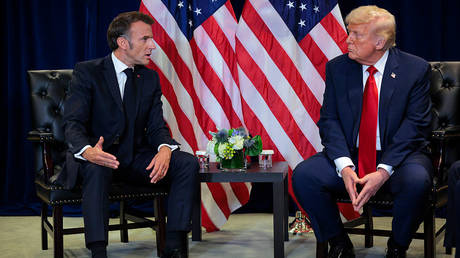
The money for Kiev was part of a $1.5 trillion spending bill to avoid a government shutdown
The US House of Representatives passed a new government funding bill on Wednesday, which included a $13.6 billion aid package for Ukraine amid its conflict with Russia.
The funds will be used to provide humanitarian and economic assistance to Kiev as well as for boosting the defense capabilities of Ukraine and Washington’s other allies in Europe, including the Baltic States.
The Biden administration had initially asked the lawmakers for $6.4 billion to respond to the Russian invasion of Ukraine in late February, but the sum has more than doubled since then.
“The brave, freedom-loving people of Ukraine and our allies in the region will receive urgently needed investments to fight Vladimir Putin and the Russians’ illegal and immoral invasion,” Senate Majority Leader Chuck Schumer (D-NY) and Speaker Nancy Pelosi (D-Calif.) said in a joint statement on Wednesday.
Pelosi also hinted that the multi-billion-dollar package is likely to be just the beginning of the aid effort for Kiev, insisting at a news conference that “all of us will have to do more” to help Ukraine during the conflict and reconstruction.
The House also backed President Joe Biden’s decision to use his executive powers to ban imports of oil and gas from Russia as part of the sanctions against Moscow. The relevant legislation had been passed by 414 to 17 votes, with only 15 Republicans and two Democrats opposing it.
“We must get this bill to the president’s desk as soon as possible to respond to these acts of aggression,” Ken Calvert (CA-42), the top Republican on the defense subcommittee of the appropriations panel, said of the Ukrainian aid package.
The spending bill of $1.5 trillion aimed at keeping the US agencies running through September 30 has now been sent to the Senate, which must act on it by the deadline on midnight Friday to avoid a shutdown of the government.
Moscow sent its troops into Ukraine on February 24, saying that the so-called “special operation” was needed to protect the breakaway republics of Donetsk and Lugansk from “genocide” on the part of Kiev, and to “demilitarize” the Ukrainian authorities.
Kiev denied having any plans to attack Donetsk and Lugansk, while accusing Moscow of waging an unprovoked conflict.




